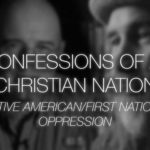We run our website the way we wished the whole internet worked: we provide high quality original content with no ads. We are funded solely by your direct support. Please consider supporting this project.
A Video Introduction to Open Theism
Here’s a video clip on Open Theism from Greg’s sessions with Travis Reed with The Work of the People. What is Open Theism? Open Theists affirm that God knows all of reality perfectly, so Open Theism really is about the nature and content of the future. Does the future contain real possibilities?
We have to wrestle with this for both biblical reasons and for philosophical reasons. Here are two simple questions:
Biblical Question: If God meticulously ordained the all of the future, then why does the Bible say that God changed his mind 39 different times?
Philosophical Question: If it is eternally certain that I will chose x, then how am I free?
Category: General
Tags: Free Will, Greg Boyd, Open Future, Open Theism, The Work of the People, Travis Reed
Topics: Open Theism What it is and is not
Related Reading

Did Free Will Evolve? (podcast)
Greg considers how free will emerged from the churning chaos of evolution.. Episode 613 http://traffic.libsyn.com/askgregboyd/Episode_0613.mp3

Doesn’t the open view demean God’s sovereignty?
The Open view demeans God’s sovereignty only if one assumes that “sovereignty” means “meticulous control.” By why think this is the way God wants to rule the world? The biblical narrative presents a God who gives humans (and apparently angels) free will, who is flexible and creative in running the world, and who relies at…

Confessions of a Christian Nation: Native American/First Nations Oppression
In this third part of the Confessions series, Brian Zahnd, Brian McLaren, Bruxy Cavey and Greg Boyd confess the sins of the Christian church against the Native American and First Nations people. Thanks to Rex Harsin for his work and vision in producing this series.

Greg and N.T. Wright at the Missio Alliance Gathering!
The Missio Alliance North American Gathering will be held April 27-29 in Alexandria, Virginia. The theme this year is Awakenings: The Mission of the Spirit as the Life of the Church. Featured speakers this year include Jorge Acevedo, Greg Boyd, Ruth Padilla Deborst, Tammy Dunahoo, Todd Hunter, Dr. Charles A. Montgomery, Jr., Cherith Nordling, Rev. Dr. Howard-John…

Is Free Will compatible with Predestination?
Question: Isn’t “freedom” simply our ability to do what we want? And if this is so there seems to be no incompatibility between saying that a person is “free” on the one hand, but predestined (or at least foreknown) by God, on the other. But why do you say that freedom is not compatible with…

What is the significance of Exodus 32:14?
The Lord states his intention to destroy Israelites because of their wickedness: “Now let me alone,” he says to Moses, “so that my wrath may burn hot against them and I may consume them” (vs. 10). Moses “implored the Lord” (vs. 11) and, as a result, “the Lord changed his mind about the disaster that…
